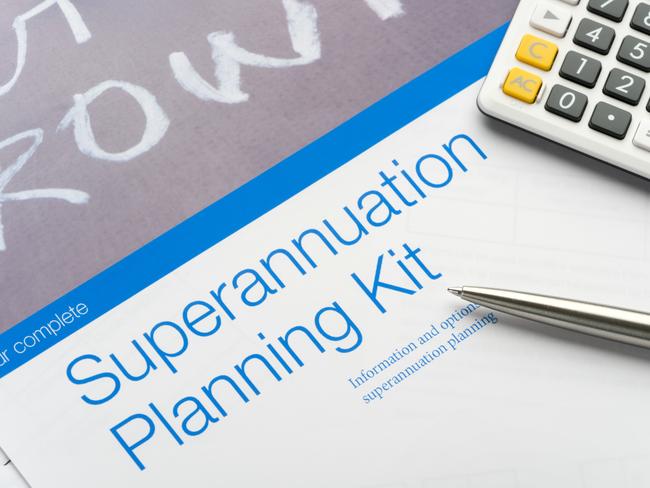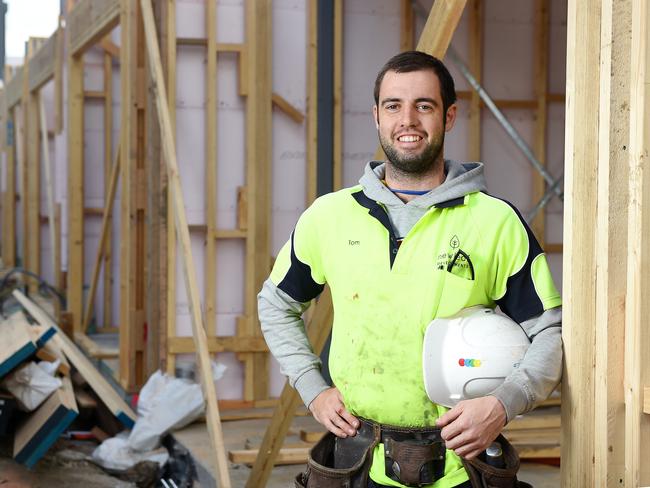Winners and losers from next month’s superannuation changes
AN OVERHAUL of superannuation rules on July 1 will potentially affect every working Australian, but it’s not all bad news.
News
Don't miss out on the headlines from News . Followed categories will be added to My News.
AN OVERHAUL of superannuation rules on July 1 will potentially affect every working Australian.
The federal government has insisted super changes will only hurt a small proportion of wealthy workers and retirees.
But they will have an impact on low-income workers, parents, spouses, pre-retirees and anyone thinking about putting extra money away for their retirement.

Exclusive new figures from the Association of Superannuation Funds of Australia show that up to 800,000 people could be worse off from higher super taxes and the lowering of contribution caps that reduce the amount people can tip into their fund.
ASFA’s data also shows that about 270,000 older Australians have transition-to-retirement pensions, which are getting their tax benefits cut.
And 110,000 people with more than $1.6 million sitting in tax-free account-based pensions will lose money by having to move out the excess above that limit by July 1.
On the flip side, more than three million people — two-thirds of them women — are winners from a new low-income superannuation tax offset, which extends a previous similar offset and is estimated by ASFA to be worth an average of $260 per person.
Another 850,000 people will benefit from allowing a tax deduction for personal super contributions made at any time.
AFSA also says tens of thousands more Aussies are winners through initiatives around spousal contributions, home downsizing and first- home saver accounts linked to super.
Dixon Advisory spokeswoman Nerida Cole said much of the attention around the changes — announced in last year’s federal Budget — had been focused on the tougher rules for wealthy savers and retirees.

“We think some of the other benefits are being overshadowed,” she said.
For example, a $540 tax rebate for people who deposit $3000 into a low-income spouse’s super fund will be much easier to access from July 1. Currently the spouse must earn less than $13,800 to be eligible, but this is rising to $40,000.
“A much bigger group of people will be able to take up that benefit,” Ms Cole said.
Workers wanting to put extra money into super — and claim a tax deduction for it — will no longer be forced to set up salary-sacrifice arrangements in advance.
From July they can inject it at any time, but will have to fit it within a new lower annual contribution cap of $25,000.

Many people have been rushing extra cash into their funds ahead of the changes.
Investment giant Colonial First State said voluntary contributions to its super funds in May were 166 per cent higher than May 2016.
“People are taking advantage of the higher non-concessional cap while it’s still available, to really maximise their savings into super, before it reduces on July 1,” said CFS executive manager Craig Day.
But he warned people to act fast, as CFS data from last year showed that more than 20 per cent of people missed the cut-off when making electronic funds transfers in the final week of June. “An electronic contribution is only made when the money hits the fund’s bank account,” he said.
Industry leaders say the endless fiddling with super rules is driving people away.

Kinetic Super chief executive officer Katherine Kaspar said the constant tinkering was “not making it easy for Australians to understand”.
“We are missing the boat, particularly young Australians who are keeping superannuation at the back of their minds,” she said.
New St George research found that half of Australians aged over 50 are ignoring super’s tax benefits and instead diverting their cash into low-interest savings accounts.
St George retail banking general manager Ross Miller said too many Australians did not review their finances.
ASFA chief executive officer Martin Fahy said people should read all the communications they were receiving from their super funds ahead of the July changes. “Contact your super fund if you have questions and they will be able to help you,” he said.
“Don’t avoid it, don’t put your head in the sand.
“This is an opportunity to make sure you check in on your super and you can take advantage of the short period of time that’s left (before July 1) under the old regime — and that you are well set up for the new regime.”
CHIPPING IN TO GET MY HOME
SELF-employed carpenter Tom Stubbings says fattening his super balance isn’t high on his priority list right now — he’s focused on saving a deposit for his first house.
The 26-year-old Brighton-based chippie (left) has 9.5 per cent of his wage tipped into his super fund, but at the same time he’s hoping to save $60,000 for his first home by the age of 30.

“I’ve got about $15,000 in super, but I’m wanting to save for a house so I’d rather have money with me so I can get a deposit together,’’ he said.
“I’d rather have the money in my own hands now rather than tied up in super that I can’t touch until I retire.”
He admits he will consider taking up the federal Budget offer of first-home buyers being allowed to use up to $30,000 of voluntary super contributions to put towards a house deposit.
First-home buyers will be able to access their fund for that from July 1 next year.


